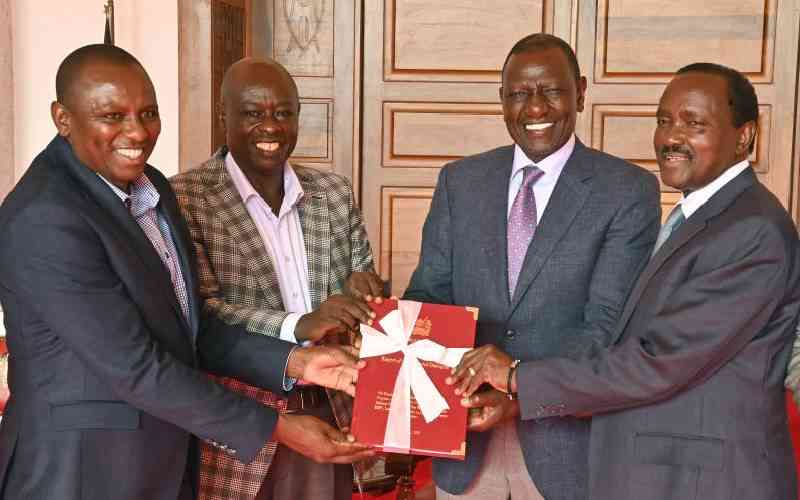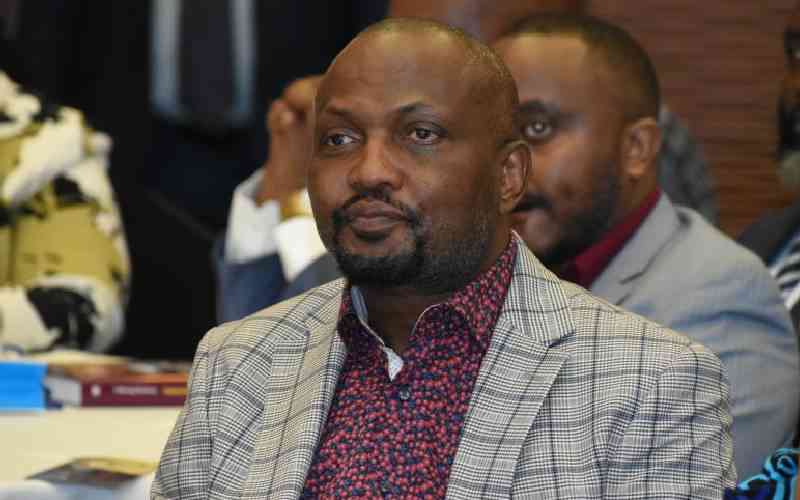The Independent Review Commission, which investigated the disputed December 2007 presidential vote, brought to the fore what Kenyans had known all along – the electoral system was rotten. Its verdict was that it was impossible to conduct credible elections with prevailing structures.
Irec, headed by Justice Johann Kriegler, gave a damning verdict of the poll, whose outcome sparked widespread violence: The results were irretrievably polluted by irregularities at every stage.
A defective voter register, the skewed distribution of constituencies, widespread bribery, vote buying, ballot stuffing, intimidation of opponents, and a grossly defective data collation system were a dangerous cocktail that had marred elections over the years.
With the integrity of the process and the credibility of the results so gravely impaired from the polling stations, the commission noted, it was irrelevant addressing claims of actual rigging at the national tallying centre.
The commission recommended overhaul of electoral management to guarantee credible, fair and transparent elections. This included implementing constitutional, legal and institutional reforms.
The passage of the new Constitution was a cornerstone for reforming management of elections, but equally important is the enactment of requisite legislation and the setting up of robust electoral and support institutions.
The country is not yet there, but the steps that are being taken are progressively pointing in the right direction.
The Chief Justice and Deputy Chief Justice took office this week. The President has also signed into law the Supreme Court Act that outlines, among others, rules of procedure for the highest court in the land.
Alongside the CJ and his deputy, five judges of the Supreme Court, which will determine disputes relating to presidential election, have been appointed.
Already, Parliament has passed the Bill to guide the appointment of commissioners to the Independent Electoral and Boundaries Commission and now awaits the President’s nod.
The draft Elections Bill, which is before the Commission for the Implementation of the Constitution for review, addressed the shortcomings and heralds a new dawn.
Its passage will mark another milestone in ensuring a solid foundation for supervision of elections, just over a year to the first General Election under the new Constitution.
The legislation aims to revise and consolidate election laws to cure the ineffectiveness of the scattered laws. The proposed law will repeal the National Assembly and Presidential Elections Act, the Elections Offences Act, and certain sections of the Local Government Act.
It will provide for the conduct and procedure of elections to the office of the President, the National Assembly, the Senate, Governor, county assemblies, and referendum.
Further, it is expected to introduce stiffer sanctions, including disqualification, harsh sentences and fines for offending candidates and voters in campaigns and on poll day, to prevent election malpractices.
Stay informed. Subscribe to our newsletter
It’s heartening that the legislation seeks to reign in on the abuse by incumbents of public resources and involvement of public officers in partisan election campaigns.
In a landmark development, too, the Bill outlines the grounds and procedure for the recall of MPs so they don’t take their responsibilities and the electorate for granted once in the National Assembly or Senate.
The Bill also enshrines the electoral code of conduct to be observed by all players and the IEBC must be granted teeth to enforce it.
Indeed the measures proposed in the Bill will set the country on the right path if they are vigorously enforced. Although it is still under review we would encourage that any changes are designed to improve and not to water it down, particularly in Parliament where politicians’ vested interests are always on the prowl.
More importantly, it must be emphasised that laws alone do not guarantee a new era. There must be a national culture change on democracy, elections, and leadership.
 The Standard Group Plc is a
multi-media organization with investments in media platforms spanning newspaper
print operations, television, radio broadcasting, digital and online services. The
Standard Group is recognized as a leading multi-media house in Kenya with a key
influence in matters of national and international interest.
The Standard Group Plc is a
multi-media organization with investments in media platforms spanning newspaper
print operations, television, radio broadcasting, digital and online services. The
Standard Group is recognized as a leading multi-media house in Kenya with a key
influence in matters of national and international interest.
 The Standard Group Plc is a
multi-media organization with investments in media platforms spanning newspaper
print operations, television, radio broadcasting, digital and online services. The
Standard Group is recognized as a leading multi-media house in Kenya with a key
influence in matters of national and international interest.
The Standard Group Plc is a
multi-media organization with investments in media platforms spanning newspaper
print operations, television, radio broadcasting, digital and online services. The
Standard Group is recognized as a leading multi-media house in Kenya with a key
influence in matters of national and international interest.









